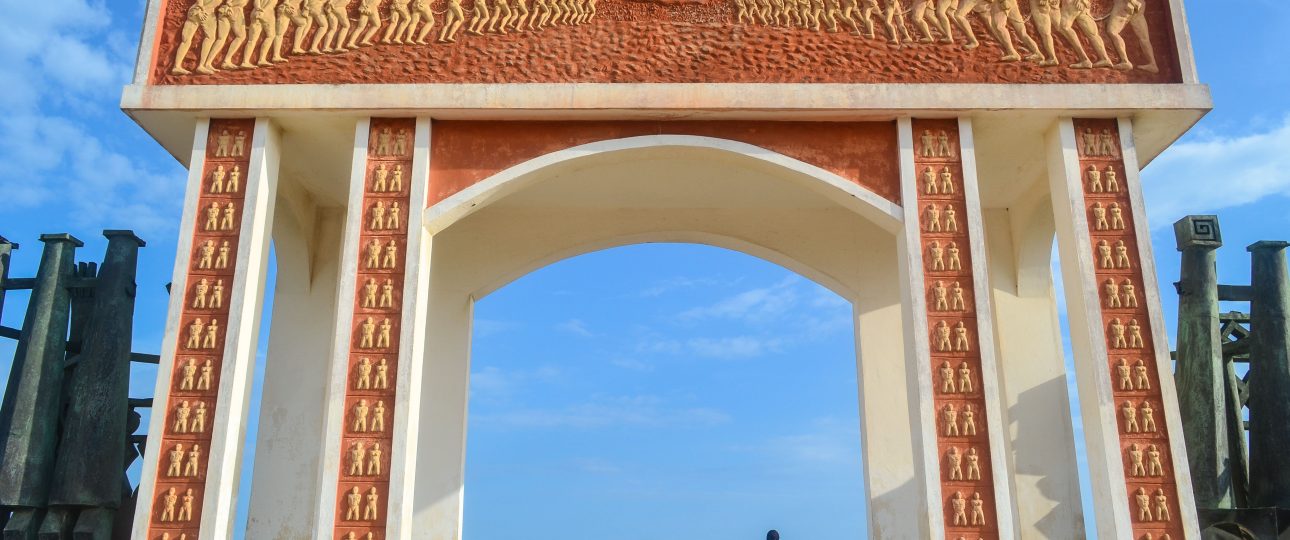The Door of No Return in Benin
History and Significance
The Door of No Return is a poignant historical site located in Ouidah, Benin. It was a major departure point during the transatlantic slave trade, where countless enslaved Africans were forced to leave their homeland forever. The site is a stark reminder of the brutal history and the irreversible journey these individuals faced, leaving behind their families, culture, and identity.
Visiting this site offers a somber reflection on the atrocities of the past. The remnants of the fortress, which once served as a slave trading post, stand as a testament to the resilience of those who suffered. Walking through the door, visitors can feel the weight of history and are encouraged to reflect on the human suffering that occurred here.
Getting There
To reach the Door of No Return, fly into Cotonou, Benin’s largest city. From Cotonou, Ouidah is about an hour away by taxi or local bus. For a more immersive experience, consider taking a shared minibus or a “zemidjan” (motorcycle taxi). These options are budget-friendly and offer a chance to interact with locals.
Best Time to Visit
Benin has a tropical climate with a dry season from November to February, which is the best time to visit. During these months, the weather is mild, with lower humidity and minimal rainfall, making it ideal for exploring the historical site.
Local Transportation
Once in Ouidah, getting around is straightforward. The town is small and walkable, but bicycles are available for rent if you prefer. Taxis are also an option, but be sure to negotiate fares in advance. The locals are generally helpful and can provide directions or recommendations.
Exploring the Site
Approaching the Door of No Return, you’ll notice the coastal landscape and the solemn atmosphere. The entrance fee is minimal, and hiring a local guide is recommended for a deeper understanding of the site’s history. Guides can provide detailed narratives that bring the past to life, helping you imagine the struggles faced by the enslaved Africans.
Don’t miss the memorial wall, which lists the names of some enslaved individuals. This serves as a powerful reminder of the human stories behind the historical events.
Accommodation and Local Cuisine
Ouidah offers a variety of accommodations, from guesthouses to beachfront resorts. Staying in a local guesthouse can provide a more authentic experience and a chance to enjoy Beninese hospitality.
Benin’s cuisine is diverse and flavorful. Be sure to try local dishes like “akassa” (a corn-based dish), “gbagba” (grilled fish), and “attiéké” (cassava couscous). These dishes offer a taste of the region’s culinary heritage.
Visiting the Door of No Return is a deeply moving experience that highlights a dark chapter in human history. It serves as a reminder of the resilience of the human spirit and the importance of remembering the past to build a future of equality and understanding.




